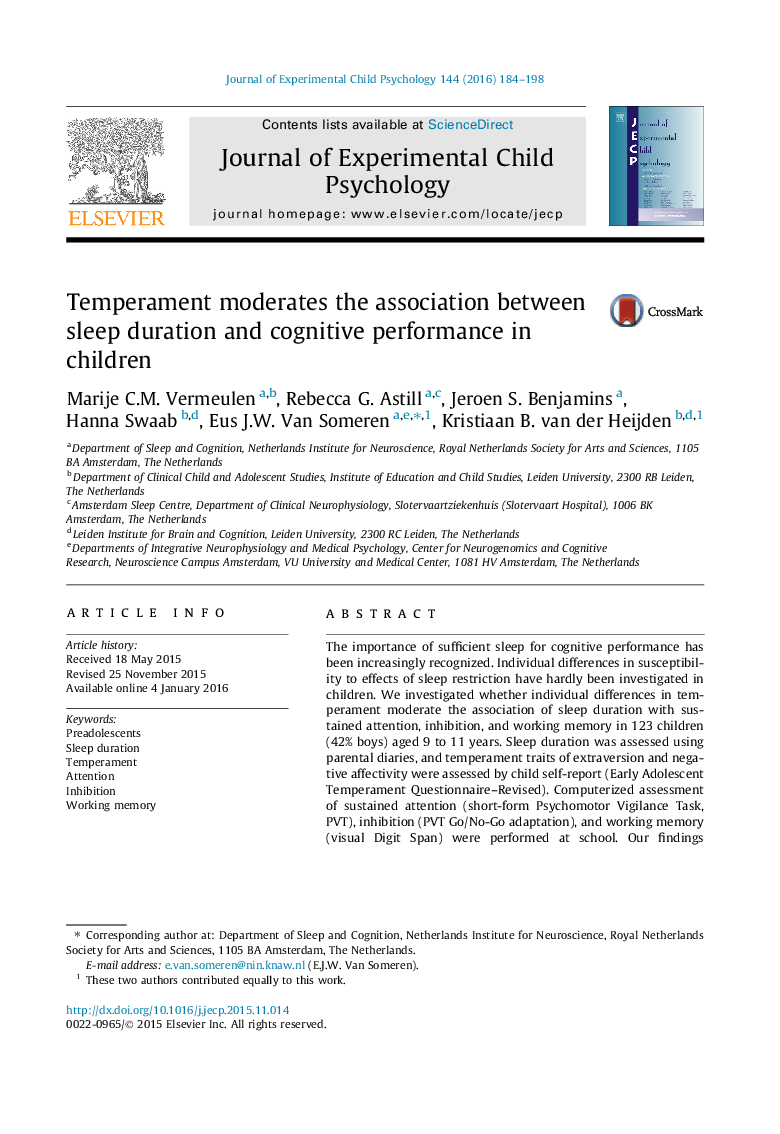| Article ID | Journal | Published Year | Pages | File Type |
|---|---|---|---|---|
| 917873 | Journal of Experimental Child Psychology | 2016 | 15 Pages |
•Long sleep does not equal better cognitive performance in children aged 9 to 11 years.•Long-sleeping introverted and neurotic children have worse sustained attention and working memory.•Temperament should be included as moderator in future studies on sleep and cognition in children.
The importance of sufficient sleep for cognitive performance has been increasingly recognized. Individual differences in susceptibility to effects of sleep restriction have hardly been investigated in children. We investigated whether individual differences in temperament moderate the association of sleep duration with sustained attention, inhibition, and working memory in 123 children (42% boys) aged 9 to 11 years. Sleep duration was assessed using parental diaries, and temperament traits of extraversion and negative affectivity were assessed by child self-report (Early Adolescent Temperament Questionnaire–Revised). Computerized assessment of sustained attention (short-form Psychomotor Vigilance Task, PVT), inhibition (PVT Go/No-Go adaptation), and working memory (visual Digit Span) were performed at school. Our findings demonstrate that long-sleeping introverted and negatively affective children show worse sustained attention and working memory than short-sleeping children with these temperaments.
